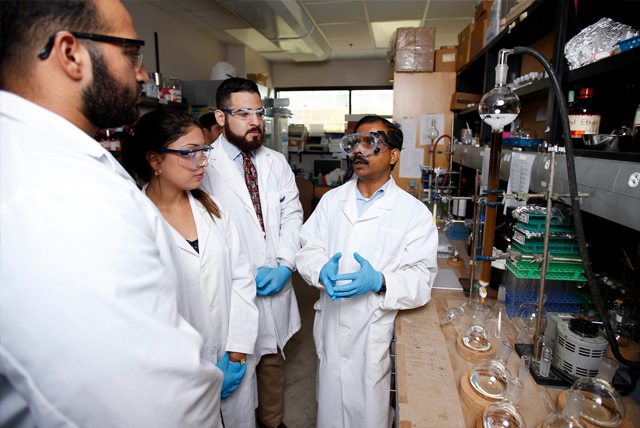Document Type
Article
Publication Date
6-13-2024
Abstract
Parkinson's disease (PD) is a neurodegenerative disorder that is caused by degeneration of nerve cells in the part of the brain called the substantia nigra, which controls movement. Although there is some considerable evidence with conventional drugs for PD, treating patients becomes increasingly difficult due to their short- and long-term adverse effects and other restrictions. This dire circumstance emphasizes the need for an innovative, strong alternative treatment for PD. Plants and natural products are considered one of the most important sources of bioactive molecules against a wide range of health disorders. With mechanistic insights, this systematic review explains the efficacy of clinically proven natural products in managing PD. This review is based on comprehensive literature searches from PubMed, Science Direct, Scopus, and Google Scholar databases using the keywords- “plants or natural products in Parkinson's”, “plants or herbs used in Parkinson's treatment”, or keywords that are similar to those. Natural products that have been clinically proven for their anti-Parkinson effect have only been selected for this study, and the products are- Mucuna pruriens, Caffeine, Camellia sinensis or green tea leaves, and a traditional Chinese herbal called Jiawei-Liujunzi Tang. In comparison to currently available medications, we firmly feel that the mentioned clinically proven natural products would be more effective at treating PD while having fewer adverse effects. However, further study is required to confirm their exact mechanism of action.
Recommended Citation
Roni, M. A. H., Jami, M. A. B. S., Hoque, S., Al Hasibuzzaman, M., Banu, K. H., Rozina, ... & Yunus, M. Y. B. M. (2024). Clinically proven natural products in aid of treating Parkinson's disease: a comprehensive review. Current Medicine, 3(1), 6. https://doi.org/10.1007/s44194-024-00033-w
Creative Commons License

This work is licensed under a Creative Commons Attribution 4.0 International License.
Publication Title
Current Medicine
DOI
https://doi.org/10.1007/s44194-024-00033-w



Comments
Student publication. This article is licensed under a Creative Commons Attribution 4.0 International License, which permits use, sharing, adaptation, distribution and reproduction in any medium or format, as long as you give appropriate credit to the original author(s) and the source, provide a link to the Creative Commons licence, and indicate if changes were made. The images or other third party material in this article are included in the article's Creative Commons licence, unless indicated otherwise in a credit line to the material. If material is not included in the article's Creative Commons licence and your intended use is not permitted by statutory regulation or exceeds the permitted use, you will need to obtain permission directly from the copyright holder.